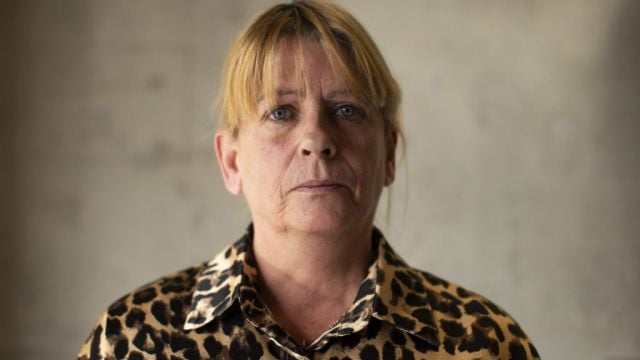The British government has been accused of “betraying” victims of the Troubles.
Martina Dillon, whose husband Seamus was shot dead in a loyalist attack at the Glengannon Hotel in Dungannon, Co Tyrone, in 1997, said she has been fighting for decades to learn the truth of what happened.
She was reacting after a decision by the UK government to challenge a critical judgment by the Court of Appeal in Belfast on the previous government’s Legacy Act.
The Act halted legacy inquests, and set up the Independent Commission for Reconciliation and Information Recovery (ICRIR) to look into cases from the past. Scores of bereaved families have opposed this, and are calling for inquests to be restored.
Last month, three Court of Appeal judges ruled that a British government veto power over what sensitive material can be disclosed to bereaved families by the Act’s ICRIR is incompatible with human rights laws.

They also found that the work of the commission also does not provide victims and their next of kin adequate means to participate in its processes.
However, other grounds of the appeal taken by the victims were dismissed, including the challenge over its operational independence.
On Friday it emerged that the British government are seeking to challenge that judgment.
Meanwhile, the Irish Government were urged to “hold to” its interstate case against the UK over the Legacy Act.
On Monday, Troubles victims, supported by Amnesty International UK and Phoenix Law expressed their concern at the move to appeal, pointing to indications by Labour before the election that it would repeal and replace the Act.
Ms Dillon said it is “absolutely disgusting the way that we have been treated”.
She described news of the UK government’s intention to appeal as “a complete shock”.
“I put my faith in the government. The day Labour got in I was so happy, and then to hear on Friday evening that they are taking a legal challenge against our court winnings, absolutely disgusted with Labour,” she said.
“Has the government not put us through enough, 27 years I have been fighting, and I’m two steps forward and 27 back, I’ve had enough, I’m tired of having to fight, I want my rights and I want them as soon as possible.
“The Secretary of State has turned his back on us.
“A year ago the Secretary of State stood up and said he was against the Legacy Act, and now he is doing exactly the same.
“We’re not going to stand for it, we’re here for an inquest and we’re not going to stop until we get one.”
Grainne Teggart from Amnesty, said seeking to appeal the judgment “raises very significant questions about the UK Government’s commitment to their own promise to repeal and replace the Act”.
“The decision is a betrayal of the UK government’s commitments and fails victims who expected repeal to mean repeal,” she said.
“The decision marks the continued dilution of the categorical pledge by Labour prior to the election that they would right the wrong of the last government on legacy.”

Ms Teggart said the ICRIR “does not have the confidence of the community it is supposed to serve”.
“The policy of this UK government now appears to be partial repeal so they can prop up a body established by the last government and maintained by this Government,” she said.
“The Secretary of State should have scrapped the Act in full. Dragging out this process is only causing unnecessary delays to victims awaiting the truth and justice they are entitled to.
“Dealing with the past in a human rights compliant way will be a litmus test for this government. It will tell Troubles victims, society here and the international human rights community how serious this government is about respecting and protecting rights.
“Our message is clear, repeal should mean repeal. We want to see two pieces of legislation, one to repeal the Act and the other to replace it.”
She added: “It is essential that the Irish Government continues to stand with victims through that Interstate case.”
Darragh Mackin of Phoenix Law said the British government “lost in the High Court, lost in the Court of Appeal”, and said they have faith the government “will again lose in the Supreme Court”.
“Last year this government in opposition confirmed their intention to repeal the Legacy Act, those were shallow words, they should now practise what they preach,” he said.
“Instead of resolution, this government has committed itself to the old ways of the former government of spending invaluable time and money on endless litigation and appeals.
“Enough is enough, it is time resources were expended where it matters most, not on lawyers and legal fees but on resolving these issues for victims who have been put through enough.”







